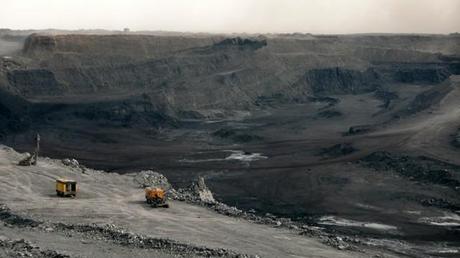
By Dash Enkhbayar
The West tends to illustrate Mongolia as an “example of a developing country that, despite the odds, managed to accomplish a peaceful transition to democracy.” However, simply achieving an electoral democracy does not complete a country’s democratic transition. Recent years have shed light on the major institutional flaws that still exists in the country’s public and private sectors.
Sandwiched between China and Russia, Mongolia has been attracting significant attention for the past couple of years due to its rapid economic growth and burgeoning mining sector. It recorded the world’s fastest GDP growth rate in 2011 at 17 percent, which put Mongolia in the international spotlight for investment opportunities.
But corruption, poor governance, and unstable government regulations threaten Mongolia’s economic potential. In 2013, due to unfriendly investment laws such as the Strategic Entities Foreign Investment Law, foreign direct investment (FDI) in Mongolia plummeted by 48 percent, which effectively scared away many investors interested in the nation. Mongolia is, in fact, not a model democracy that it seeks to invoke. Instead, the last few years have demonstrated that unless Mongolia seriously starts tackling its institutional weakness it may succumb to the “resource curse,” in which a country with an abundance of natural resources experiences poor economic growth and a worsening political climate.
Mongolia abandoned communism in 1991 to embrace democracy and a free-market economy. Yet, the transition has not been easy. Mongolia was rescued by the International Monetary Fund five times in a span of 22 years. When Mongolia’s enormous mineral deposits, such as coal, copper, and gold, were discovered, mining companies rushed to invest due to the nation’s proximity to coal-hungry China. These developments had a massive impact on the government, with politicians exchanging money for votes during election periods.
The Mongolian parliament is composed of three major parties of which the Democratic Party (DP) holds the majority of the seats. The President, Prime Minister and the Speaker of Parliament all belong to DP as well as numerous businesspeople that have amassed considerable wealth in a country where 28 percent of the population still live in poverty. Electoral democracy must be founded upon strong institutions in order to thrive as a true democracy.
The quality of Mongolia’s institutions is its biggest challenge. According to the Corruption Perception Index 2013, Mongolia is ranked 83 out of 177 countries, and the Heritage Foundation ranked Mongolia at 97 out of 178 in economic freedom, while the country stands at 107 out of 148 according to the Global Competitiveness Report 2013-2014 from the World Economic Forum. Corruption remains the most important challenge as tackling the institutional roots of corruption is the only method to resolve the issue. High profile punishments for specific individuals only serve as a distraction and a political tool (as demonstrated by notable corruption cases initiated by the Democratic Party before parliamentary and Presidential elections in 2012 and 2013, respectively.) If institutions allow corruption, there will always be someone else to replace the previous corrupt individual.
Recent poor economic performance, including a current account deficit that reached 28 percent of GDP and 48 percent decrease in FDI caused by controversial mining regulations, politicians waving nationalistic flags for votes, and political uncertainty such as DP’s aggressive replacement of many officials in Mongolia with DP-friendly individuals, evidently clarifies that the quality of institutions is key in successfully benefiting from abundant natural resources.
The former mayor of Ulaanbaatar recently gave an interview in which he stated that, as a result of Mongolians losing trust in their institutions, many are “regretting their decision” to fight for democracy over 20 years ago. The state has “become an instrument of the greedy” and the Mongolian democracy is in a “disgraceful condition,” he said.
Institutional weakness is preventing Mongolia from reaching its full economic potential. Countries such as Botswana been able to solidify their institutions and avoided the ramifications of the “resource curse,” while countries struggling with corruption, poor governance, and lack of transparency, such as Nigeria, suffer from poverty and low growth despite their vast resource wealth.
Mongolia’s future is uncertain and whether Mongolians will see their living conditions improve from the mining sector ultimately depends on its institutions.
Dash Enkhbayar was a CIPE Communications Intern in Summer 2014.

